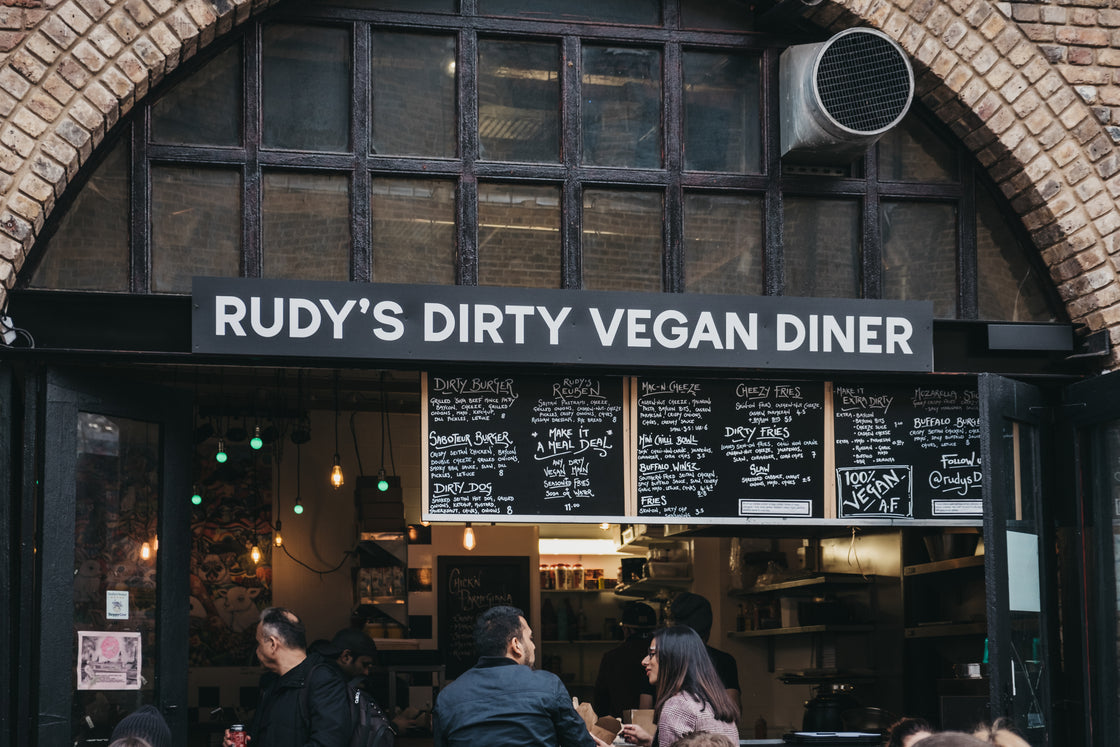Animals, the planet and personal health - the three most common reasons for becoming vegan. But, last year it was reported that more than half of UK adults who began a vegan diet for the first time gave up, based on factors relating to taste or convenience. Will the fight to make a vegan diet more accessible result in the benefits being lost in translation?
No longer a niche movement, the huge spike in demand for plant-based meat and dairy alternatives has seen swarms of vegan restaurants popping up over major cities and beyond, with high-street chains and supermarkets racing to catch up. The "vegan pound" is real, and big businesses are fighting to grab their share. Life as a vegan is certainly changing, and the pace of change is accelerating, but is it all good news? Here’s my take on the highs and lows.
Let’s start with coffee. For aficionados who have recently become vegan, you may well have noted that most plant based milks don’t do so well in your cortado, all that curdling. Barista-style blends do better, with oat milk seeming to be nudging ahead in popularity stakes for that velvety feel. Bravo.
Now there’s the not-so-good-news, for a nutritionist at least. The fastest growing vegan food companies are those that are creating vegan replacements for traditional animal-based products that come as close as possible to the taste and texture of the what consumers are used to.
That means you can order your Beyond Burger with fries, alongside a caramel milkshake and vegan donut. Deliveroo your favourite pizza without cheese, and then finish on the grill with generous swathes of vegan cheese slices. For afters, enjoy vegan cheesecake. It’s all so easy that the idea of soaking pulses overnight to make a batch of lentil and chickpea curry, once standard practice, might even now sound absurd. Vegan or not, a good diet is one that’s as unprocessed as possible. Don’t be blindsided by vegan labels. Vegan burgers, shakes and sugary snacks are still, well, burgers, shakes and sugary snacks.
There are serious blindspots out there within the service industry and supply chains too. Airlines offering vegan snack meals that consist of a dry roll with a cold slice of pepper inside; I’m not joking. this was served to me during a transatlantic trip this summer. If you shop in major supermarkets you might have come across two chunks of packaged cauliflower sold as “steaks,” for double the price of a whole cauliflower, not to mention the ridiculously wasteful packaging. Wrong on so many levels.
In short, with so much hype around vegan products, it can be hard to keep a sensible head, so let me try to be a voice of reason.
No matter what, a healthy diet is one where the bulk of meals is plant based. Energy density (calories) of food does matter, for sure, but what matters much more is what that food does in and to our bodies. Plant based eating, such as was standard in ‘old school’ vegan diets is wonderful news for gut health, which, by the way, is also linked to helping you to stay healthy, happy and lean.
Lastly, let’s focus on nutritional specificis. Contrary to popular belief, vegans are not at greater risk of anaemia than anyone else if they are mindful of iron, consuming leafy greens with vitamin C to aid absorption (with the caveat that if you are predisposed to anemia you require professional nutritional guidance). And then there’s the question of protein. There is no doubt that there’s plenty of protein in vegan fare, vegans simply need to be consistent about consuming it, just like everyone else.
In fact, there are only two key nutritional areas that warrant extra attention, omega-3 fats and vitamin B12. Oily fish is a great source of omega-3 fats, that’s a fact. Omega-3 is also the most deficient essential fatty acid in the western diet. These fats are called essential fats because they are essential to consume, your body cannot do without them. Vegans need to get really disciplined around regular, sustained consumption of sources such as chia, flax and hemp, or take the easier route of buying a supplement oil such as Udos’ Choice and using several times a week, if not daily. It has been a fridge staple of mine for over 20 years.
Getting enough vitamin B12 as a vegan is a bit more tricky. It can be obtained from fortified foods such as yeast extract or breakfast cereals, but many vegans choose to take a supplement, overall an easier option.
In short, there are easy ways to make the transition to a vegan diet easier and healthier, but turning to convenience food isn’t one of them.



